African National Parks & Reserves
Which Should You Choose for your African Safari?
Chances are, the vast majority of your African safari will take place in a national park or reserve of some kind. From Kenya’s Maasai Mara to the Serengeti of Tanzania and South Africa’s Kruger, national parks account for much of your wonderful safari experiences and host many of the luxurious lodges and intimate camps we proudly align with and introduce our guests to. However, national parks are only one of the ways to immerse yourself in an African safari, and while they do offer so many spectacular opportunities, they aren’t without their limitations. Sometimes, dare I say often, a private safari reserve will allow you to discover the wonders of Africa as if you were the first person to ever witness them.So, which is best: a vast national park or an intimate private reserve? Let’s take a look.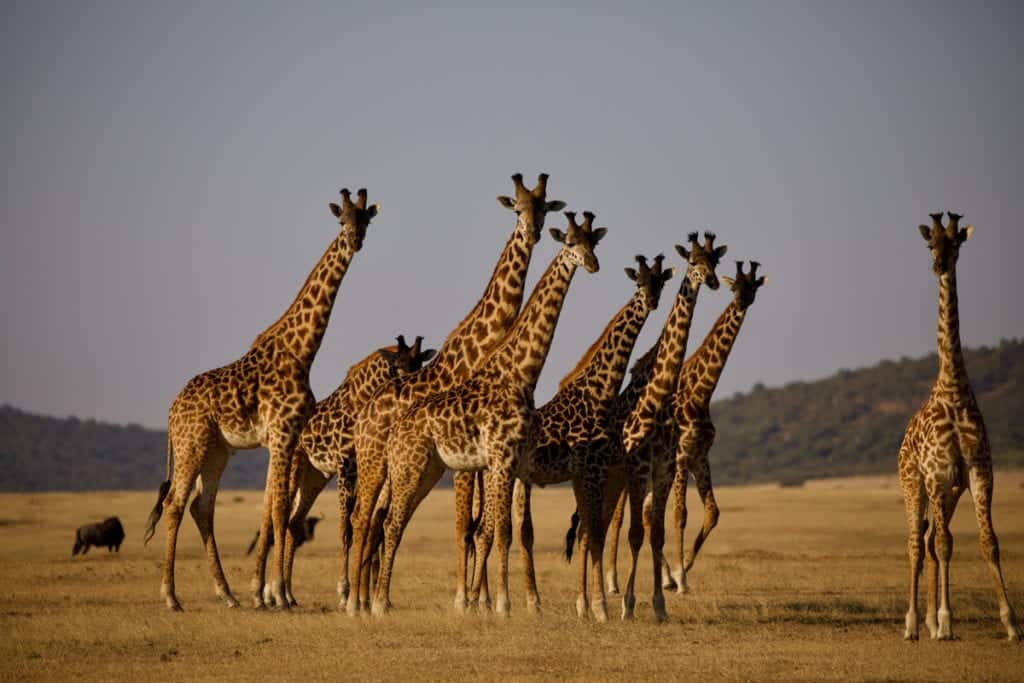
Africa’s National Parks
National parks are frequently far more expansive than private reserves and, as such, harbor a wider array of wildlife. The Great Migration, for example, contains several million creatures and circumnavigates the Serengeti and Mara National Parks annually. Likewise, Kruger National Park – affectionately dubbed ‘the People’s Park’ – encompasses some 7,600 miles² (20,000 km²) of grassland, or veldt, that is home to more large animal species than any other African safari park. These include the iconic Big Five – elephant, lion, rhino, leopard and cape buffalo – in addition to a wealth of antelope species, warthogs, ostriches, zebra, wildebeest, hyena, cheetah, wild dogs and many other smaller animals.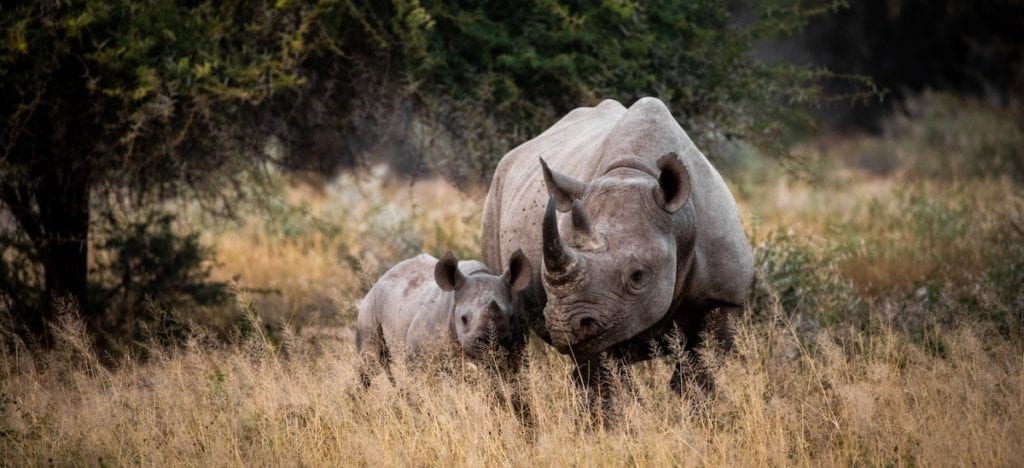 National parks are Africa, untouched – the quintessential rolling hills, grassy plains and abundance of life that has captivated millions of travelers for well over a century. They are somewhat the epitome of a safari experience and frequently contain some of the continent’s most iconic landmarks, including Victoria Falls, Mount Kilimanjaro, the Makgadikgadi Pans and several lakes – Nakuru, Natron and, to some extent, Tanganyika and Victoria. This, combined with their proliferation of wildlife, makes many of the national parks a more obvious destination for your African safari – but are they the right choice?Their global renown is not without warrant and your Travel Designer will frequently recommend portions of your journey be allocated to the wonders of Africa’s almost 100 national parks. They are popular for good reason and you will often discover sights and experiences irreplicable anywhere else in Africa, or indeed the world.
National parks are Africa, untouched – the quintessential rolling hills, grassy plains and abundance of life that has captivated millions of travelers for well over a century. They are somewhat the epitome of a safari experience and frequently contain some of the continent’s most iconic landmarks, including Victoria Falls, Mount Kilimanjaro, the Makgadikgadi Pans and several lakes – Nakuru, Natron and, to some extent, Tanganyika and Victoria. This, combined with their proliferation of wildlife, makes many of the national parks a more obvious destination for your African safari – but are they the right choice?Their global renown is not without warrant and your Travel Designer will frequently recommend portions of your journey be allocated to the wonders of Africa’s almost 100 national parks. They are popular for good reason and you will often discover sights and experiences irreplicable anywhere else in Africa, or indeed the world.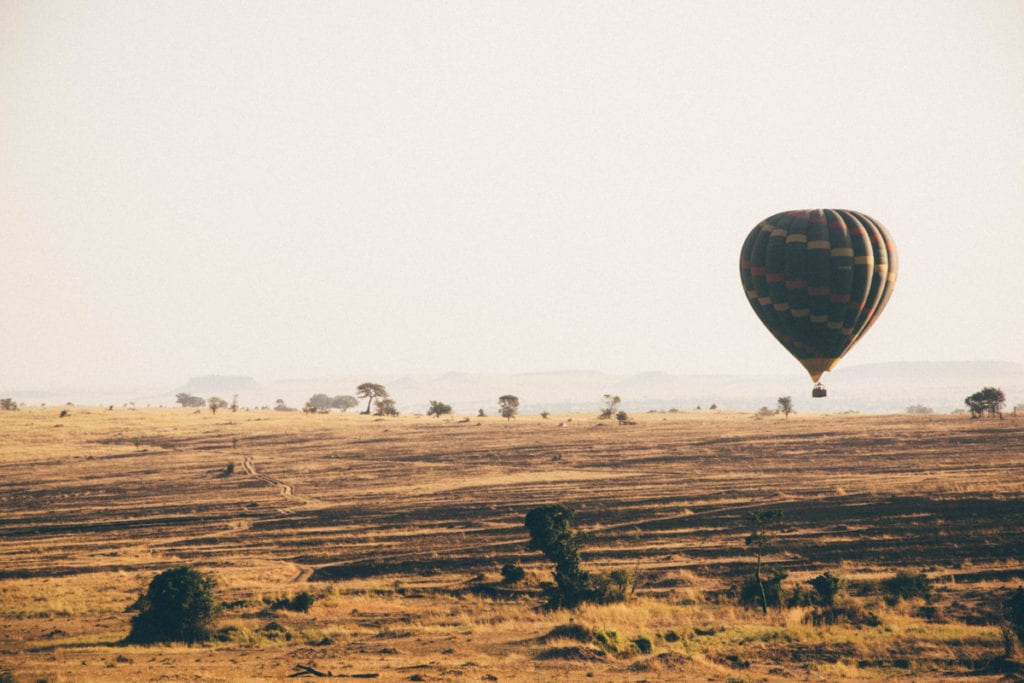 Additionally, many of the camps with which we align remain remote and exquisitely intimate, allowing you to feel completely alone in the expansiveness. Despite their many benefits, national parks do have several shortcomings. That admirable acclaim that lauds them with such popularity is as much a benefit as a downfall, with many thousands of tourists flocking to the most celebrated locations, sites, even individual animals. The whispers upon the parks’ grapevines extend far and travel quickly; if a rhino is spotted, a leopard discovered with a fresh kill or any number of the more elusive creatures seen within the park, it will be a race against time to witness it before the crowds descend. National parks contain more cars, more people and even large, double-decker tour buses. While you are unlikely to hit gridlock in the middle of the Kruger, you may find yourself politely moved on from viewing a particular animal, rather than being able to stay for as long as you want – or for as long as the animal will tolerate you!
Additionally, many of the camps with which we align remain remote and exquisitely intimate, allowing you to feel completely alone in the expansiveness. Despite their many benefits, national parks do have several shortcomings. That admirable acclaim that lauds them with such popularity is as much a benefit as a downfall, with many thousands of tourists flocking to the most celebrated locations, sites, even individual animals. The whispers upon the parks’ grapevines extend far and travel quickly; if a rhino is spotted, a leopard discovered with a fresh kill or any number of the more elusive creatures seen within the park, it will be a race against time to witness it before the crowds descend. National parks contain more cars, more people and even large, double-decker tour buses. While you are unlikely to hit gridlock in the middle of the Kruger, you may find yourself politely moved on from viewing a particular animal, rather than being able to stay for as long as you want – or for as long as the animal will tolerate you!
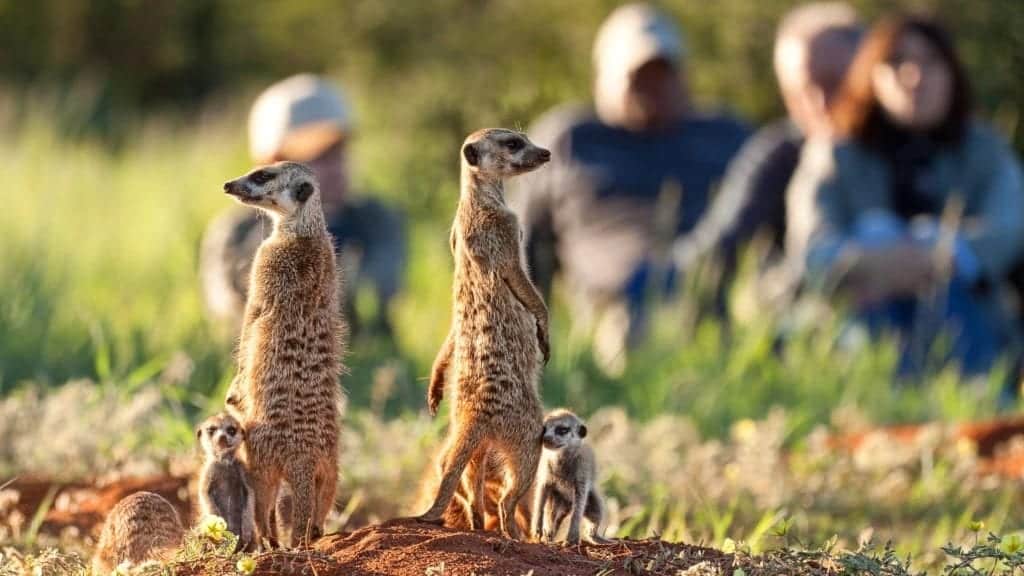
Night drives and open walks are also rarely, if ever, allowed. This eliminates some of the most magical moments that one can experience on the plains and perpetuates a certain sense of remaining one step removed from the wilderness. Despite these negatives, national parks do more often than not offer all you could wish for from your African safari and, as somewhat of a generalization, provide a more affordable vacation.For a more intimate safari experience, a private reserve is second to none.
Private Safari Reserves
It must first be admitted that private reserves are invariably far smaller than national parks. Those geographical big tickets – the mountains, lakes and so on – also will rarely, if ever be featured within a private reserve. So if you are wanting the most recognizable ‘Africa’ of postcards and tour guides, a private reserve may leave you wanting for more.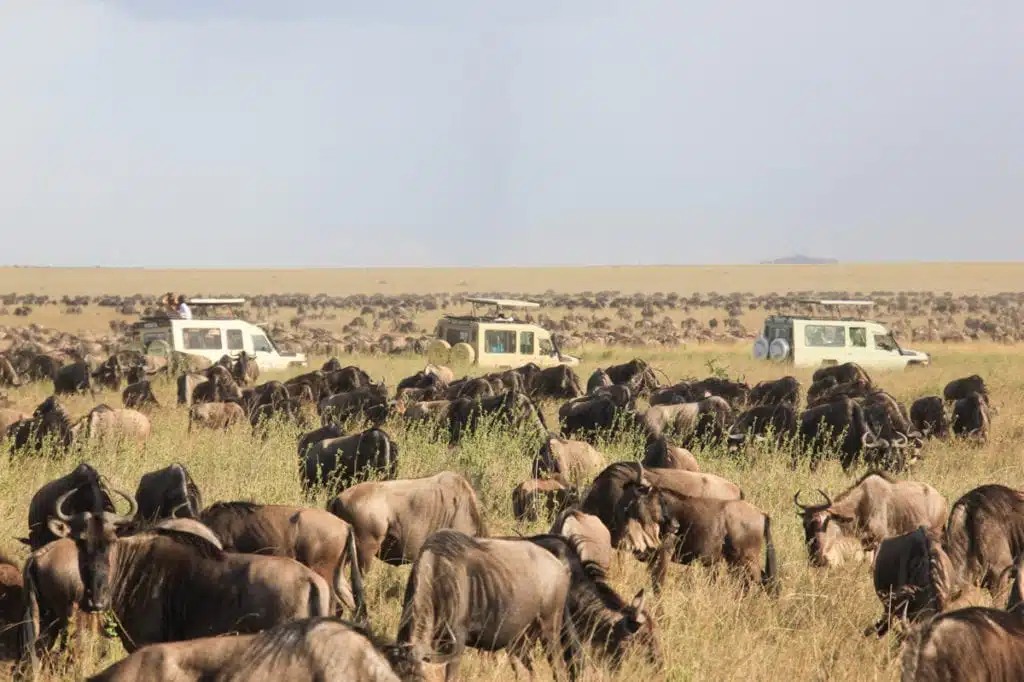 However, at Rothschild Safaris we believe a true African safari experience reaches far beyond the more frequented destinations, lying instead in the solitude, serenity and exclusivity one can only discover and enjoy in a private reserve. Private reserves are far less trafficked, closed to all but those in residence within its boundaries, allowing you time, space and only the very minimum of fellow travelers to share it with. You are unlikely to meet any large groups and the fewest of other vehicles, and your time with animals is unlimited, avoiding the haranguing one might receive in a national park if greedily spending too long observing the wildlife. National parks adhere to strict rules around exiting your vehicle, visiting times, the routes taken through the park and many more policies that might negatively affect the flexibility of your game drive. This is for very good reason. Such necessary regulations protect the wildlife, the landscapes and your safety and are absolutely vital to the sustainability of the park and your wellbeing.
However, at Rothschild Safaris we believe a true African safari experience reaches far beyond the more frequented destinations, lying instead in the solitude, serenity and exclusivity one can only discover and enjoy in a private reserve. Private reserves are far less trafficked, closed to all but those in residence within its boundaries, allowing you time, space and only the very minimum of fellow travelers to share it with. You are unlikely to meet any large groups and the fewest of other vehicles, and your time with animals is unlimited, avoiding the haranguing one might receive in a national park if greedily spending too long observing the wildlife. National parks adhere to strict rules around exiting your vehicle, visiting times, the routes taken through the park and many more policies that might negatively affect the flexibility of your game drive. This is for very good reason. Such necessary regulations protect the wildlife, the landscapes and your safety and are absolutely vital to the sustainability of the park and your wellbeing.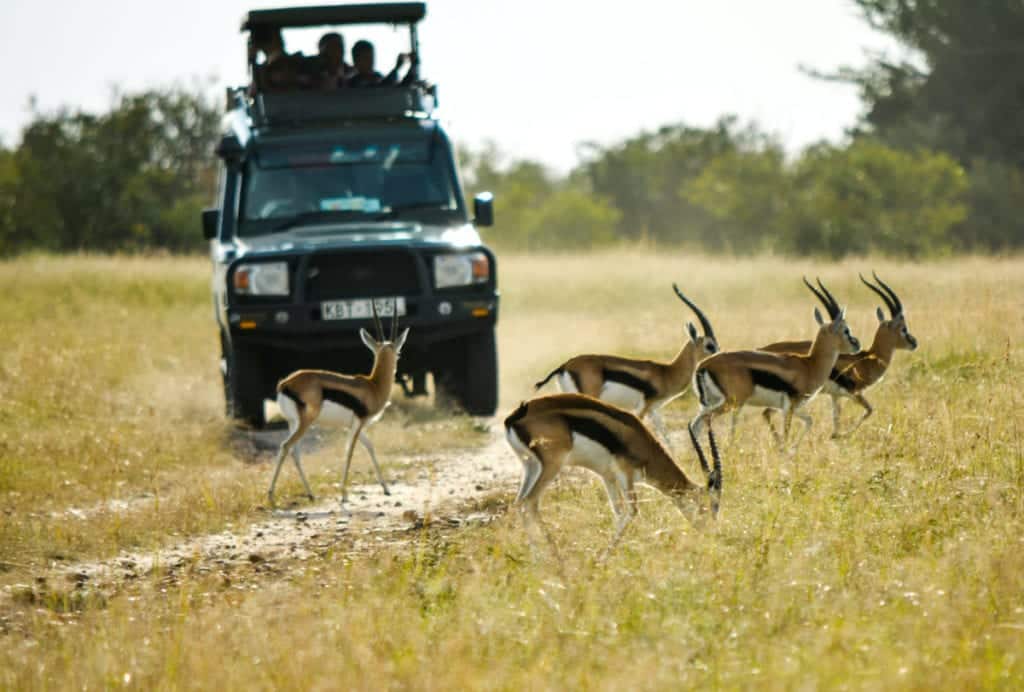 With a far more bespoke experience available on a private reserve, these requirements can be somewhat more lenient or even completely disregarded. Your guides will be acutely aware of the region, the needs of the park and its inhabitants, and what is accomplishable. Without a continual stream of visitors to manage, guides, rangers and staff can focus on their very few guests, ensuring their safety and maximizing their opportunities for many more remarkable moments than can be achieved in a public park. Not only does this allow you to witness the animals in a more personal circumstance, it also enables you to take in some of the more exceptional safari activities, such as walking alongside a herd of elephant, a delicious bush dinner as the sun slowly sets over the wide plains or a treehouse or tented night in the bush.
With a far more bespoke experience available on a private reserve, these requirements can be somewhat more lenient or even completely disregarded. Your guides will be acutely aware of the region, the needs of the park and its inhabitants, and what is accomplishable. Without a continual stream of visitors to manage, guides, rangers and staff can focus on their very few guests, ensuring their safety and maximizing their opportunities for many more remarkable moments than can be achieved in a public park. Not only does this allow you to witness the animals in a more personal circumstance, it also enables you to take in some of the more exceptional safari activities, such as walking alongside a herd of elephant, a delicious bush dinner as the sun slowly sets over the wide plains or a treehouse or tented night in the bush.
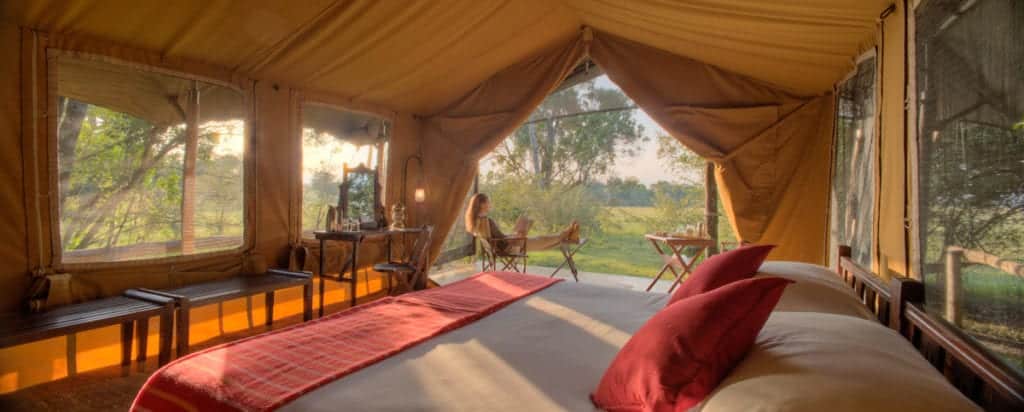
Though the animals’ wellbeing is always of the utmost importance and attention within private reserves, they will frequently have a higher density or more accessible population of wildlife. Rest assured that resident animals aren’t crammed into diminutive areas solely for your pleasure. In fact, many reserves remain open, allowing animals to come and go freely. Instead they actively choose to reside in these areas, which are better managed and protected with a balanced ecosystem in which everything may thrive. The welfare of wildlife is always of the utmost importance to us and we would never reserve or recommend an establishment or reserve that doesn’t match our stringent ethical standards.
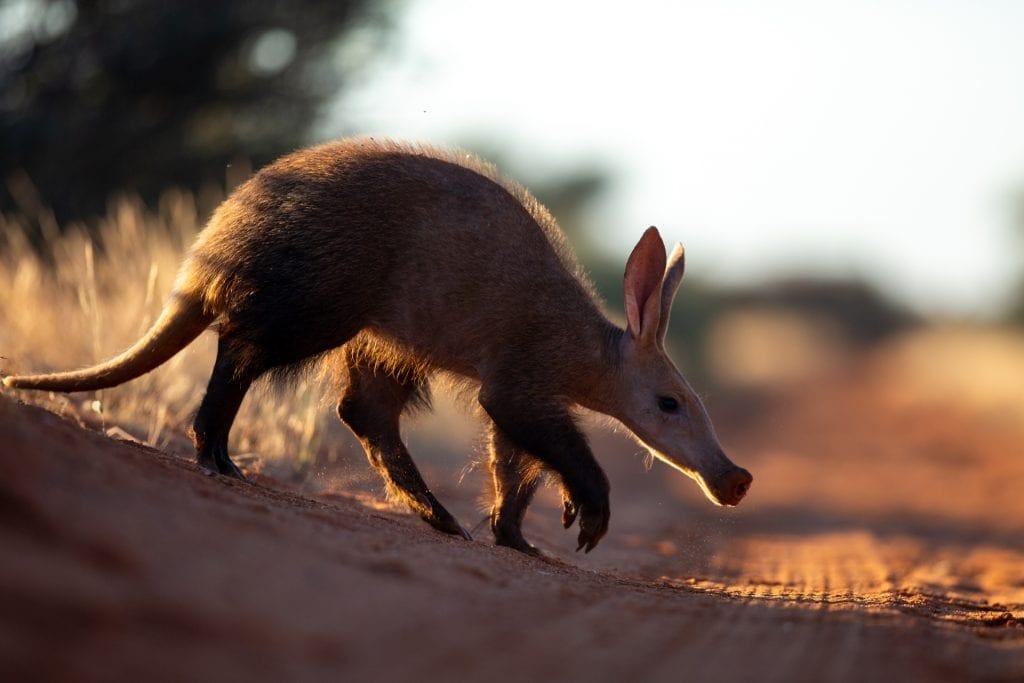
However, not all private reserves are the same. Some will share their borders with neighboring reserves and lodges, diminishing their absolute exclusivity and some are simply too small, lacking the opportunity presented by a larger park or reserve. We have carefully considered each and every private reserve with which we affiliate, ensuring that your experience will encompass all of the benefits with none of the shortcomings, and with ecology, ethics and sustainability of paramount focus.
Which is Best?
The short answer is both, or a combination of the two. We would more readily recommend a private reserve over a national park to the majority of our clients. ‘Once in a lifetime’ is rarely found amongst crowds or an area so vast that it is either too much to take in within your vacation period or so expansive that nature has more than enough wilderness in which to remain hidden. Sometimes, these aspects are well worth enduring, offering you possibilities not afforded by the lesser private reserves.In turn, a reserve provides a uniqueness and solitude that can rarely be achieved within the breadth of a national park. Your hosts, too, may be more attentive to your needs and more able to provide a personal touch unavailable when you are one guest amongst many. For the majority of African safaris, I would recommend a private reserve as your ‘base camp’, affording you the excellence of accommodation and landscapes on your doorstep each and every day. From there, day trips or short overnight stays can be incorporated to take full advantage of all the greater national parks have to offer. As always, your Travel Designer will be able to recommend the ideal combination of accommodations, venues and destinations to gain the very best of your African safari.
Images via Rothschild Safaris
